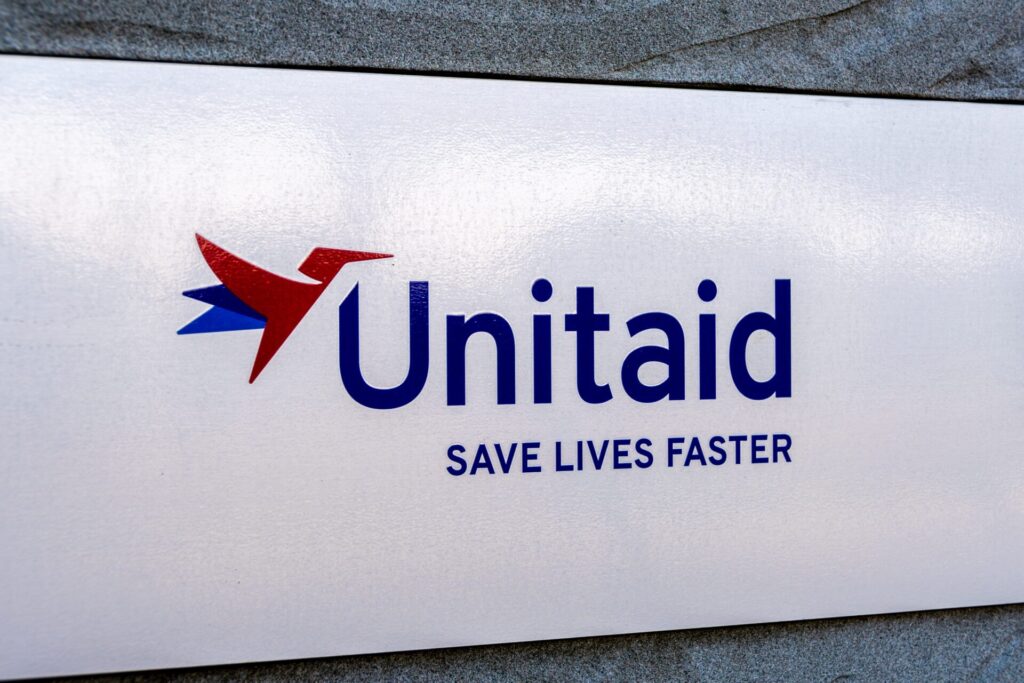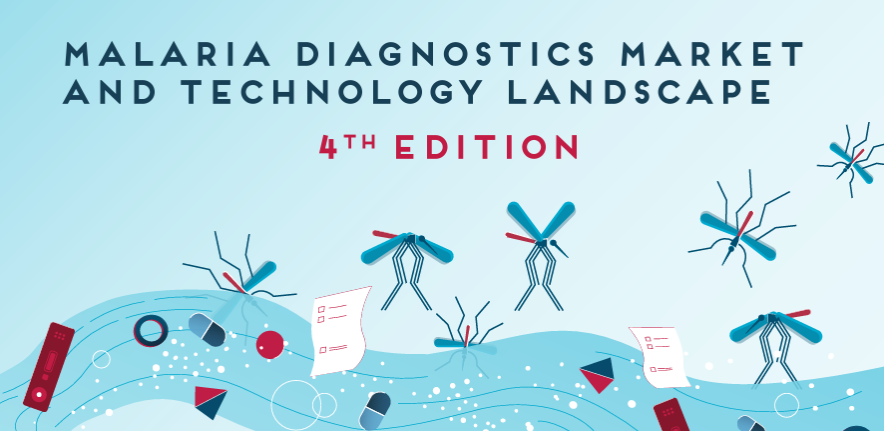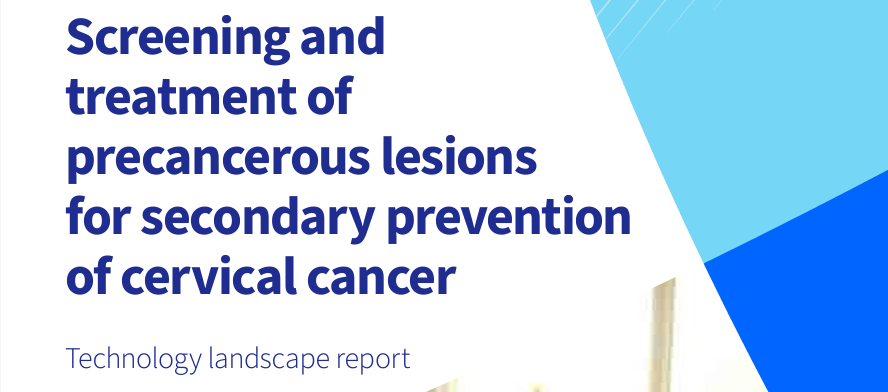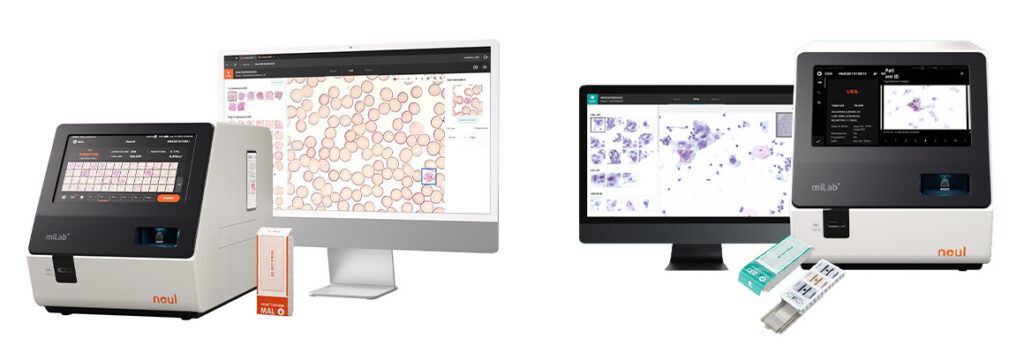NOUL is a biotechnology company focused on advancing healthcare diagnostics globally. miLab™ is an advanced diagnostic tool designed to improve the detection and management of various diseases, emphasizing accessibility and efficiency.
miLab™ recently gained recognition in UNITAID technical reports, underscoring its role in addressing critical healthcare challenges and advancing global health by meeting the needs of resource-limited settings.
UNITAID and Its Role in Global Health
 Source : Shutterstock
Source : Shutterstock
UNITAID is an initiative under the World Health Organization (WHO) that plays a vital role in the improvement of global health outcomes through advanced diagnostics and treatments.
It focuses on major health challenges, including:
- Malaria
- Tuberculosis
- HIV/AIDS
- Non-communicable diseases such as cervical cancer
UNITAID’s technical reports play a crucial role in shaping global health policies by guiding investments in innovative technologies that address diagnostic and treatment gaps in undeserved regions. These reports influence policy-making and funding priorities, which drives the adoption of innovative tools such as miLab™.
The inclusion of miLab™ in the UNITAID reports reflects its alignment with criteria such as accessibility, adaptability to low-resource settings, automation of diagnostic processes, and cost-effectiveness.
Malaria Diagnostics Market and Technology Landscape (June 2022)
 Source : UNITAID
Source : UNITAID
A UNITAID report focused on malaria diagnostics. It highlighted miLab™ as a transformative solution to combat malaria. The latter is a disease that disproportionately impacts low-resource regions. miLab™‘s on-device AI technology offers portable, automated solutions, reducing the need for extensive lab infrastructure and enabling early disease detection in resource-limited settings.
miLab™’s contributions to malaria diagnostics include:
- Enhanced efficiency – Automates complex diagnostic procedures and increases accuracy.
- Accessibility – Addresses the needs of healthcare institutions in malaria-endemic areas.
The management of the specific challenges that are faced by underserved populations allows miLab™ to reduce malaria morbidity and mortality rates in high-burden regions.
Learn more about miLab™‘s role in malaria diagnostics and its impact on resource-limited regions by clicking here.
Screening and Treatment of Precancerous Lesions for Cervical Cancer (October 2024)
 Source : UNITAID
Source : UNITAID
A UNITAID report, released in October 2024, highlights advancing technologies for cervical cancer prevention, including miLab™. There was a specific focus on precancerous lesion detection and treatment. The recognition of miLab™ in this report stems from its cost-effective and accurate cytology-based screening for cervical intraepithelial neoplasia.
Here are the key contributions of miLab™:
- Cost-effective solutions – Facilitate early detection of cervical cancer in resource-constrained settings.
- Improved accuracy – Supports secondary prevention through the detection of cervical intraepithelial neoplasia (CIN) with reliable cytology
The recognition of miLab™ in this report is another highlight of its role in the reduction of barriers to cytology-based screenings. Ultimately, this will improve healthcare outcomes for women in underserved regions.
The table below summarizes miLab™’s contributions as highlighted in the UNITAID reports, offering a concise view of its role in addressing major global health challenges such as malaria and cervical cancer prevention:
What This Dual Recognition Means for NOUL
 Source : NOUL
Source : NOUL
These two tributes solidify miLab™’s reputation as an impactful diagnostic tool. The acknowledgment by UNITAID validates its clinical and technological efficacy and reinforces its potential to drive innovative solutions for emerging healthcare challenges globally.
What’s more, the recognition also positions NOUL as a leader in the global health field that’s ready to tackle diagnostic challenges with innovative and sustainable solutions.
NOUL’s Commitment to Global Healthcare Advancement
NOUL’s mission revolves around the development of equitable healthcare systems by providing efficient diagnostic tools. Through sustainability and innovation, the company aims to deliver cutting-edge solutions that meet the needs of resource-limited communities.
miLab™ exemplifies this commitment by:
- Transform diagnostics – Its portable and automated features reduce dependency on traditional lab setups, which ensures the early detection and prompt treatment of critical diseases.
- Drive equitable access – Address disparities in healthcare through scalable solutions for underserved populations.
NOUL actively collaborates with global health leaders, including UNITAID. The final goal is to expand access to diagnostics. The continuous refining of miLab™’s capabilities addresses new global health challenges and advances its vision for sustainable healthcare.
Conclusion
The inclusion of miLab™ in two important UNITAID reports highlights its potential to address global health challenges through innovative diagnostics. This recognition not only underscores NOUL’s commitment to enhancing healthcare outcomes in undeserved regions but also positions the company to contribute to the development of sustainable and scalable solutions for emerging health crises.
As a trusted partner in global health, NOUL remains committed to developing innovative solutions that not only align with international standards but also address emerging global health challenges.
For more information about miLab™ or to inquire about partnership opportunities with NOUL, visit our product inquiry page.

